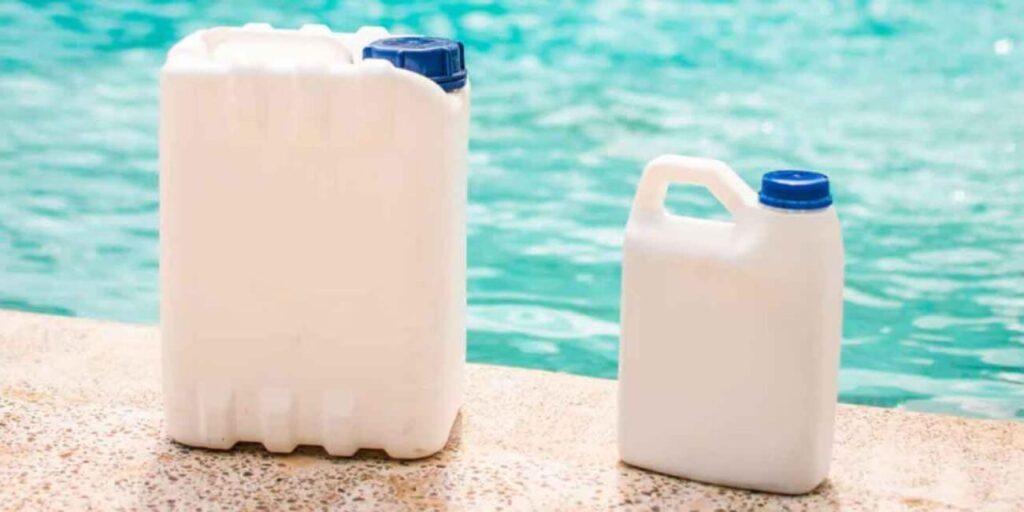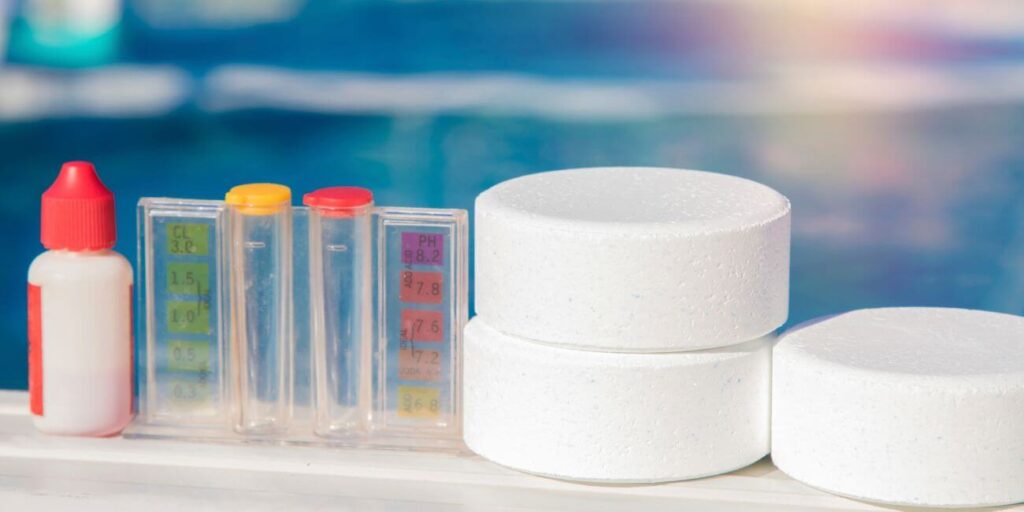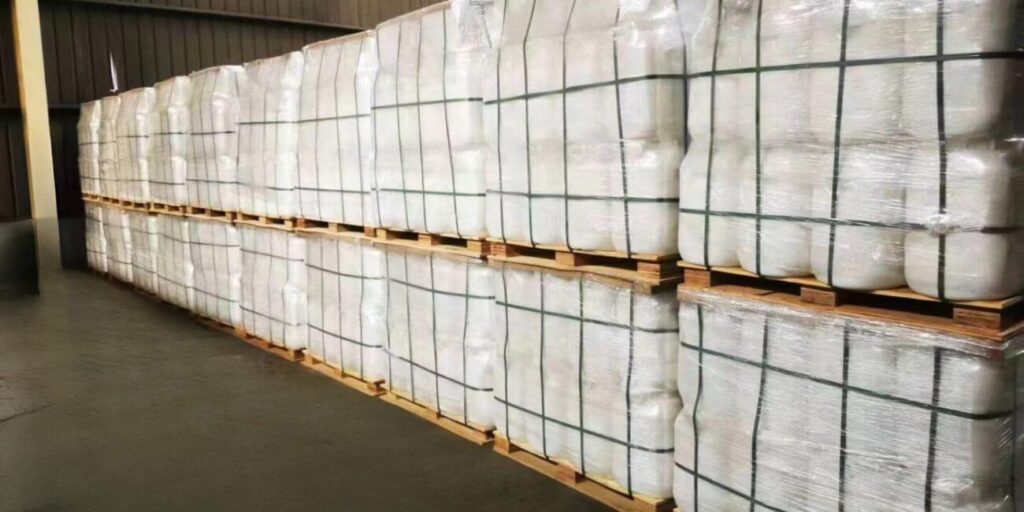A clean pool is a happy pool. To fulfill this, you will need the correct amount of chlorine. This article will guide you to the required chlorination doses. We will specifically target the 1200-gallon pool and compare pool chlorine products. In this case, we shall examine the pool chlorine tablets. The guide illustrates simple, short sentences that allow you to read and understand the porpoise of the pool clearly.
Table of Contents
-
-
-
-
-
-
- Why Chlorine Is Essential?
- Main Types of Chlorine
- How to Calculate Chlorine for a 1200 Gallon Pool?
- Methods of Chlorine Application
- A Closer Look at Pool Chlorine Tablets
- Seasonal Adjustments and Shock Treatments
- Water Testing and Safety
- Tips for Using Pool Chlorine Tablets
- Maintaining Your Pool Year-Round
- Conclusion
-
-
-
-
-
Why Chlorine Is Essential?
Every pool must have chlorine. This is the way it cleans and disinfects a swimming pool. It is also very effective to prevent it in growing algae persistent dirt and oil are also decomposed by chlorine. If chlorine were absent, you can imagine the state of the water. It will support a safe environment for your family members and yourself accordingly. That is to say, chlorine is a solution to solve pool problems.
By adding the right chlorine, your pool with sweaty will be free of harmful bacteria, and your kids will stay fun with the clean pool water.
Main Types of Chlorine
Chlorine has several types of products. Each way of the application is different. We hereby plan to discuss some of them:
-
Liquid Chlorine

Liquid chlorine is the easiest type of chlorine to apply. It is available in a bottle form. Pour it directly into the pool, and it will be mixed in the water body for an instant effect. The basic chlorine chemicals liquid chlorine is the most efficient and fast-acting pool sanitation chemical, but it is prone to sun inactivation.
-
Granular Chlorine

Granular chlorine , also known as chlorine granules, appears in the form of powder. It can be utilized by mixing with water before pouring it into the pool. Moreover, granular chlorine can also be considered as the most effective way of shocking the chlorine level up. In addition, it is a type of strong chlorine that acts very quickly. Alternatively, it may be a good solution to the pool that requires a quick fix.
-
Pool Chlorine Tablets

Pool chlorine tablets are commonly used as chlorine products in the pool sanitization. They are tiny, and dissolve slowly, as they are slowly releasing chlorine, thus, water can be kept safe for a much longer time. Another advantage of pool chlorine tablets is that they are easy to store and last longer than liquid chlorine. They are preferred by a majority of pool owners. Without them, a 1200-gallon pool will become a green fern bed. They are the ones that protect your pool and your family constantly.
How to Calculate Chlorine for a 1200 Gallon Pool?
Chlorine calculation doesn’t need to be very hard. Start the journey to render your pool effectively. It will be accounted exactly at a 1200 gallon pool, a proper dosage of chlorine should be off-tuned with the water volume.
Step 1: Determine the Base Dosage

The rule of thumb is between 52 and 104 ounces of liquid chlorine for 10,000 gallons of water for larger pools. Using only a tiny portion of that amount will be enough for a 1200 gallon pool. You can get that by placing them into the pool and then dividing. Meaning, 1200 divided by 10,000 equals 0.12. At the last point, you multiply 0.12 with the required amount. Then, you can get about 6 to 12 oz of liquid chlorine.
Step 2: Consider the Desired Chlorine Level

A chlorine range of 1 to 4 ppm is the optimal condition for most pools. If your pool is on the smaller side, you should aim to be on the lower side. Video-clarification helps to identify if breaching optimal chlorine level is an issue or not. The bacteria level in the pool water requires re-adjusting of the chemical dose in the maintenance season like winter.
Step 3: Adjust for Different Chlorine Types
Chemical arithmetic changes when chlorine is inserted with chlorine pool tablets in the process. Slowly but surely, those tablets will simply dissolve and the chlorine will be released a day at a time. Adhere and follow the company’s guide. Often, you do not need to take the tablet for the entire tab if the pool is not a 1200-gallon pool. It’s better to use a tablet dispenser or chlorinator to control the extent of the release of gases.
Step 4: Monitor Regularly

It is a must to test the pool every week. Use a pool testing kit to check the free chlorine and pH levels. It is best to keep the pH between 7.2 and 7.8. Routine check-up assists to know when you need to add more chlorine. In a word, just modify your treatment as needed.
Methods of Chlorine Application
There are many ways of adding chlorine to your pool, some are easier than that of others. Let’s take a look at the most common ones.
- Direct Application
You can add chlorine directly to the pool. Pour it into the water while the pump runs, which helps to mix the chemicals evenly. Direct application is the best way for small dosage, but you should be careful about it. If it is overdone, it can cause swimmers and the pool to be in danger.
- Automatic Chlorinator
An automatic chlorinator is a great time-saver. It adds chlorine steadily. You set it and forget it. It works well with pool chlorine tablets, which slowly dissolve in the device. This method keeps your chlorine level steady, making it a smart choice for regular pool care.
- Floating Dispenser

Another simple tool is a chlorine floating dispenser. You put pool chlorine tablets into it, and the dispenser will float on the water, gradually releasing chlorine. This method is low-tech and cost-effective. It may not, however, distribute chlorine as evenly as an automatic system.
Each method has its pros and cons. Choose the one that fits your needs. For many, using pool chlorine tablets in an automatic chlorinator is the best option.
A Closer Look at Pool Chlorine Tablets
For many pool owners, tablets of pool chlorine are the best choice. It is slow-acting, stays at a steady level and is quite easy to use. Let’s explore more about them.
Advantages
- Steady Release:
Pool chlorine tablets dissolve slowly. They keep the water safe by giving a consistent flow of chlorine.
- Ease of Use:
The tablet does the work, so there is no need to measure it every time. You’ve placed the chlorine tablet in an automatic chlorinator, making it do necessary jobs for you.
- Long-Lasting:
Under normal conditions, the pool chlorine tablets last for many days. They are very handy as opposed to liquid chlorine.
- Storage:
Pool chlorine tablets are simple to store. They are resistant to spoilage. Because they keep much more power, they do not become useless after a long storage period.
- Cost-Effective:
Generally speaking, pool chlorine tablets are more cost-effective than other chlorine products.This is why they cause a lesser need for the frequent dosing treatment.
Common Misconceptions
Certain people have concerns when it comes to pool chlorine tablets. They are afraid of the excess of chlorine that can be harmful to the pool. However, you don’t have to worry about this, as the chlorine level can be controlled when the pool chlorine tablets are used appropriately without any damage to the pool.
How to Use Them
Place the tablet in a chlorine dispensing floater. If you do not have one, get an automatic chlorinator, which can help you with distributing the chlorine more evenly. Nevertheless, chlorine tablets must not get in contact with the pool surface directly, as it will damage the pool liner.
Seasonal Adjustments and Shock Treatments
Going with the change of seasons, the pool maintenance may also be affected. In this case, it is also possible for you to change the dosage amount of chlorine. Let’s discuss the thing right now.
Summer
During the summer season, people use pools more often than usual. The temperature of water increases while the production of bacteria and algae speeds up, which subsequently leads to the faster usage of chlorine. During those hot months, you have to put additional chlorine into the pool. Thus, the pool chlorine tablets are perfect for such cases. They will dissolve chlorine slowly, which can keep the levels balanced even if the pool is crowded.
Winter
In winter seasons, swimming is less common. The water in the pool is colder and therefore, the chlorine does not evaporate as quickly as that in the summer. In this circumstance, you should put less chlorine into the pool water. However, you still have to use a little chlorine to prevent algae. Change the dose in winter, observe the water, and put the chlorine on as required.
Shock Treatments

Naturally speaking, the reason why shock treatment may be performed is the dirt in the pool. This is a rapid chlorine addition to the pool when it is contaminated with a lot of dirt. Heavy contamination is the primary goal of pool shock treatments. They are not similar to the regular dosing. Although, it is incorrect to say that pool chlorine tablets are not used for shock treatments, you had better go for liquid or granular chlorine to remove the dirt. Shock treatments should be done with caution. Make sure you follow the product instructions.
Routine vs. Shock
The daily cleaning of the pool is provided by the regular maintenance. The right thing to do is to use pool chlorine tablets to maintain the proper level of chlorine. They do not emit chlorine quickly but gradually. While shock treatments are for dire situations only. You must use them when no other option is left. The following thing you should do after a shock treatment is to test the water for any unnatural levels of chemicals. After that, go back to your usual routine with pool chlorine tablets.
Water Testing and Safety
Maintaining a healthy pool calls for water testing. Regular testing is a must. It ensures the precision of chlorine level.
Testing Clicks
A weekly test should be done for your pool water. In summer, you may need more checks with a good test kit and look for free chlorine as well as pH levels. This will help you understand when to put more chemicals into the pool.
Safety Tips
Be careful to handle all chlorine products. Put on gloves and protective glasses. Never mix chemicals. Always read the tips. Do as it says on the bottle. This will absolutely protect you.
Storage Tips

The chlorine should be stored in a cool and dry area without direct sunlight. Make sure your children don’t play with it. The pool chlorine tablets should be kept in their original package. This not only keeps them fresh but also helps them to maintain a good quality. Therefore, proper storage is a critical factor in effective pool care.
Balancing the Water
Balancing water is crucial. The proper pH range, recommended by specialists in the field, is between 7.2 and 7.8. This is where chlorine is the most active. Alkalinity and calcium hardness need to be measured too. The correct ph level of the water helps to deliver your pool equipment and also assures safe swimming conditions.
Tips for Using Pool Chlorine Tablets
Pool chlorine tablets have become quite popular because they work extremely well. Some fast tips to get the best results have be stated as follows.
Use a Dispenser:
Use a chlorinator or floating dispenser always. In this way, the pool chlorine tablets will not always “sit” in one place.
Follow Instructions:
Go through the med label of the items carefully. Follow the dosing instructions exactly as they are given.
Test Regularly:
Even with tablets, it is crucial to monitor the pool water frequently. In this way, you will know if the chlorine is correctly dosed.
Adjust as Needed:
It might be required to modify the dose of the tablets on the basis of outdoor temperature as well as the frequency and time of using your swimming pool. In hot weather, you might need more tablets.
Keep It Clean:
It is good to clean your dispenser regularly because it will work much better under proper maintenance.
Replace When Needed:
Get rid of old tablets that are still undissolved in water. The proper levels of chlorine can be kept by using new tablets all the time.
Maintaining Your Pool Year-Round
A healthy pool requires constant attention. Your chlorine needs may change from time to time. Here are various ways of keeping your pool in perfect condition.
Daily and Weekly Routines
There are several tasks that have to be done such as cleaning your pool regularly. You should brush the walls and vacuum the floor. Get rid of debris and leaves. Make sure to turn on your pump daily. This prevents uneven distribution of chemicals.
Check the water chemistry at least once a week. Test the pH and chlorine levels while altering them accordingly. When the chlorine level decreases, you should be ready to add more pool chlorine tablets.
Regular Maintenance
Inspect whether your chlorinator is in good condition. This boosts the effectiveness of your pool chlorine tablets which in turn provides you with the best quality water. Replace the ones that are not functioning properly when it is needed.
Record the values of your tests. Take note of the pH and the chlorine levels once a week. The records will help you to notice the statistical fluctuations and to program accordingly. The regular maintenance of your pool provides you with the necessary safety.
Professional Help
However, in some cases, seeking help from professionals is the best way to go. A pool service can check your water chemistry and inspect your equipment. Professional aid ensures your pool to get the best service it deserves.
Conclusion
A pool of 1200 gallons is nothing much, yet the manner it is cared for is a procedure that should be well handled. Chlorine is the main component in keeping the water free of any disease and clean. The discussion about calculating the chlorine zero has been exemplified by this guide. We have also talked about liquid chlorine, granular chlorine, and pool chlorine tablets along the way.
- Opt for the tablets. These are multitaskers that not only protect swimming pools but also are easy to store and utilize. In addition, they release slowly and help to maintain a balance in the pool. Use them in automatic chlorinator or floating dispenser to get the best results.
- Try to test your water on a regular basis. You must make sure the level of free chlorine is within 1-4 ppm. Keep the pH in the range of 7.2 to 7.8. Adapt your chemicals going with the weather changes or people who use the pool. Clean the pool and maintain your equipment more often.
The testimony ‘Abide by these tips and your pool will be in great shape throughout the whole year’ is true to the hilt. Small sized pools like the 1200-gallon are greatly watered down by the care they have received. The right kind of caring will make your pool a place to rest and play while you will also feel proud of this.
